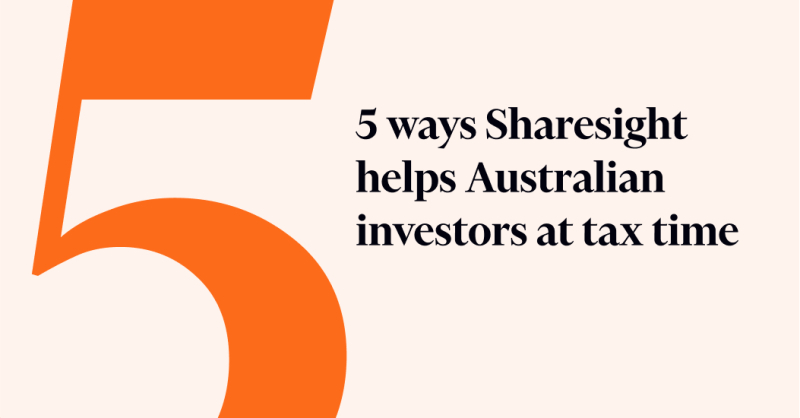Mutual Funds vs ETFs in the UK - what are the differences?
UK investors have a long history of trusting their money to mutual funds, where it is pooled with the investment of others and managed by professional investors to a set objective. Mutual funds invest in stocks, bonds and other securities or a combination of asset classes. However, ETFs are increasingly competing for this investment spend and offer investors access to a range of shares and sectors and are undoubtedly one of the investment world’s biggest success stories of the past decade.
In this article we detail what mutual funds and ETFs are, how they differ, and what you need to look out for if you’re looking to invest in either in the UK.

Mutual funds in the UK
Mutual funds offer investors access to a diversified collection of stocks and / or bonds across a range of sectors and markets in a single fund. Because the fund size is far greater than the contribution of any one investor, mutual funds offer scale, diversity, reduced risk and less exposure to market volatility than investing in a single company or industry would.
Mutual funds tend to suit more traditional "mom and dad" investors who are happy to pay a premium to see their portfolio professionally managed. These investors may also be after some of the more complex features of mutual funds that aren’t available in ETFs, such as a regular cash flow or more tax efficient outcomes. The appeal of mutual funds to investors over direct investment in share markets can be summed up in three points:
-
Diversification – a range of shares, sectors and securities in one fund
-
Affordability – cheaper than directly acquiring many individual securities
-
Professional management – funds run by managers with experience and expertise.
ETFs in the UK
Like mutual funds, ETFs are a pooled investment product offering investors access to a diversified collection of stocks and other securities like bonds. Traditionally, ETFs were designed to track an index, commodity or currency, allowing investors the diversification of a mutual fund with the trading characteristics of a security that can be bought or sold on a stock exchange. Unlike a fund, it can be bought or sold throughout the day on a stock exchange which is why ETFs are effectively a hybrid of a tradable stock and an index-tracking fund.
In the UK, the terms ‘ETFs’ (exchange-traded funds) and ‘ETPs’ (exchange-traded products) are increasingly used interchangeably but there are differences that investors should be aware of. ETP is the umbrella term for a range of exchange-traded products of which ETFs are by far the largest subset. Most ETFs try to follow a specific index, such as the FTSE 100, to produce the same investment return. Funds which do this are commonly known as passive, or tracker funds in the UK market.
ETPs can also be benchmarked to a wide range of other traditional investment sectors, including commodities, currencies and bonds. Some examples are exchange-traded managed funds (ETMFs); exchange-traded structured products (SPs); exchanged-traded vehicles (ETVs); exchange-traded notes (ETNs) and exchange-traded commodities (ETCs). However, these products are generally unsuitable for retail investors as they offer less protection and can use complex financial techniques, increasing the risks for investors.
ETFs or Mutual Funds?
Increasingly,UK investors are pulling out of mutual funds and moving their money into ETFs. This trend towards passive rather than active management is being underpinned by several factors including disillusionment with fund managers, price / fee sensitivity and a demand for transparency in investment products.
However, investors that see merit in actively managed mutual funds are also moving across to newer ETFs in the form of ‘smart beta’ or active ETF products that are more akin to their mutual fund counterparts. The purpose of actively managed funds is to outperform a benchmark index by selecting when to buy and sell stocks based on the fund manager's research and expertise. Actively managed mutual funds are much more common than actively managed ETFs.
In both cases a fund manager is engaged to make the investment decisions although the active ETF aims to outperform a benchmark index while a mutual fund manager usually has a far broader remit to spot market irregularities to the benefit of investors. This line may become increasingly blurred in the future as the ETF industry continues to grow in complexity and seeks greater diversity in both products and investment strategies.
Costs and tax implications
Mutual funds are more complex products than ETFs and this translates into higher management fees. Generally, the annual cost breakdown will include an overhead or admin fee, fund manager charges and, if the investment was made before 2013, trailing commission to the financial advisor or firm that sold the fund to the investor.
On the other hand, ETFs are generally seen as a low-cost way to earn a return similar to the index, commodity or currency being tracked. They can also be bought the same way you buy and sell shares but far more cheaply than investing directly in multiple listed companies. Management fees are lower, even for more actively managed ETFs, as competition amongst providers is fierce, there is no embedded commission to be paid and servicing costs are well below those of mutual funds. However, investors should be aware that brokers typically charge the standard stock trade commission for ETF purchases and sales while this cost is typically built into the mutual fund model.
Aside from service or admin fees, investors should also consider factors like minimum investment and tax considerations. There is generally no minimum investment for ETFs while this can range from a few hundred to several thousand pounds for mutual funds. Generally, ETF investors only face capital gains tax measures when they sell their shares while mutual fund shareholders may face capital gains taxes regardless of whether they sell shares. This is due to ETF shares being traded on an exchange, meaning there is a buyer for every seller. That might not be the case with a mutual fund which might need to sell shares of the underlying securities, triggering a capital gains tax event.
Buying and profiting
Mutual funds in the UK are usually purchased via a financial advisor or directly from the fund company. ETFs can be bought and sold on an exchange through a broker, just like a stock, with many services geared to matching buyers and sellers. In both cases it is prudent to do your homework and shop around before deciding. Performance, cost / commission and minimum purchase amount are all factors that should be taken into account.
With both ETFs and mutual funds investors can potentially profit in two ways. The first is the capital gain when selling out of a fund for more than you paid for it. The second is with distributions in the form of dividends, interest, capital gains or other income the fund earns on its investments. A mutual fund offers investors the option of receiving distributions in cash or, more typically, having them reinvested in the fund. ETFs don’t reinvest cash distributions in more units or shares but rather hold this cash in the investor’s account until instructed on how it should be invested.
Track UK mutual funds with Sharesight
Sharesight tracks the price and distribution information for over 12,000 mutual funds in the United Kingdom, one of more than 30 global stock exchanges and mutual fund markets that we support.
If you’re not already using Sharesight to track your mutual fund investments, what are you waiting for? It’s free to sign up, and with Sharesight you can:
-
Track all of your investments in one place, including stocks, ETFs, mutual/managed funds, property, and even cryptocurrency
-
Track your investment performance, including the impact of brokerage fees, distributions, and capital gains with Sharesight’s annualised performance calculation methodology
-
Run powerful reports built for investors, including Performance, Portfolio Diversity, Contribution Analysis and Future Income (upcoming distributions)
-
Run tax reports including Taxable Income (dividends/distributions), Capital Gains Tax (Australia and Canada), Traders Tax (Capital Gains for traders in NZ) and FIF foreign investment fund income reports (NZ)
Sign up for a FREE Sharesight account and get started tracking your investment performance today.

FURTHER READING

Sharesight product updates – July 2025
This month's focus was on rolling out predictive income forecasting, as well as improved cash account syncing across different brokers and currencies.

5 ways Sharesight helps Australian investors at tax time
Learn how Sharesight’s Australian tax features can not only help you complete your tax return, but also save you time and money at tax time.

Sharesight users' top 20 trades – June 2025
Welcome to the June 2025 edition of Sharesight’s monthly trading snapshot, where we look at the top buy and sell trades by Sharesight users in all markets.